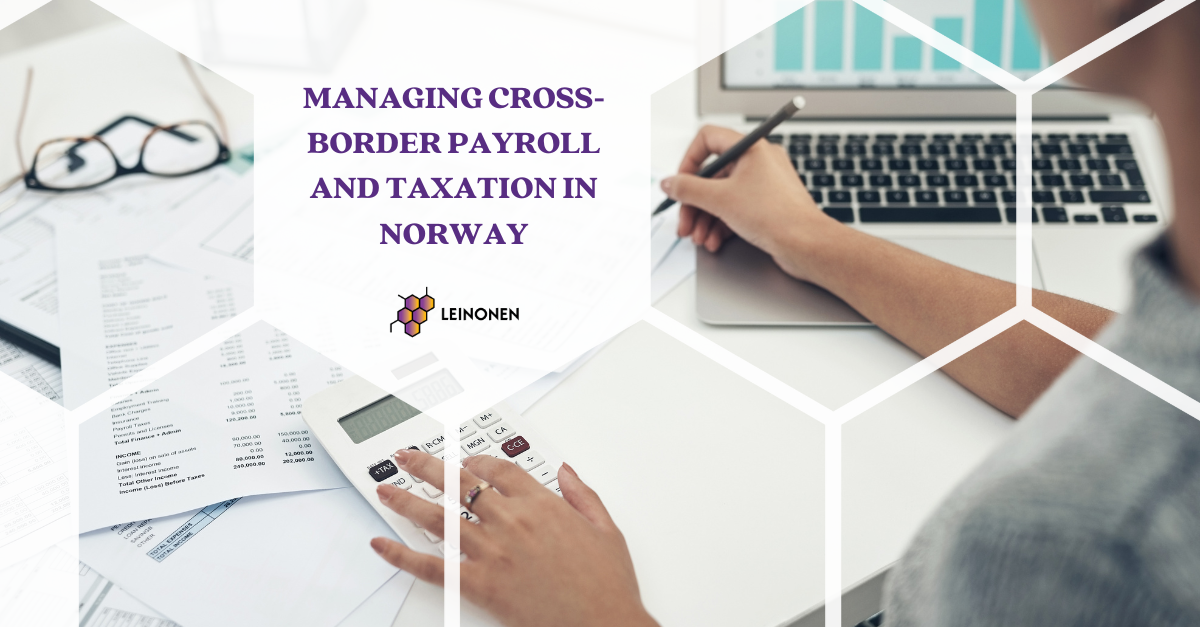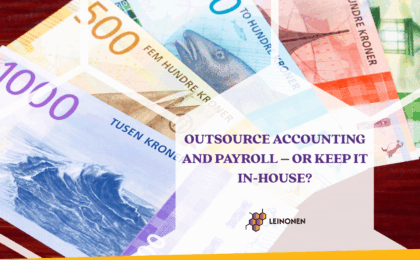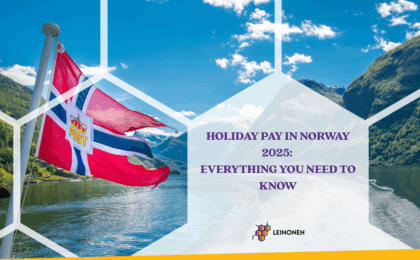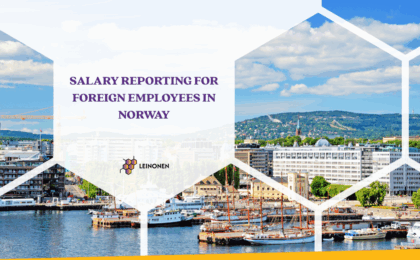A lot of questions often arise regarding payroll and taxes for foreign workers. Are there any differences between them and regular Norwegian employees? Will the taxes be calculated in the same way? Are there any challenges in the process of running payroll? Do all payroll programs support such a payroll run? In this article we will take a closer look at these and other questions.
Differences between Norwegian and foreign workers
Let’s start with the basics. All employees in Norway need to have a tax deduction card. Norwegian employees usually receive this card automatically each year based on last year’s income. This tax deduction card shows how much an employee need to deduct from the salary. We call it a withholding tax deduction. For Norwegian employees the rule is simple: the more you earn in Norway, the more tax you pay.
Foreign employees also need a tax deduction card, but they need to apply for it. Another important difference is that foreign employees can choose whether they want to be on a regular tax scheme or the simplified one which is called PAYE (Pay As You Earn). This tax scheme was introduced for foreign workers in Norway on 1th January 2019. In most cases this tax scheme will be relevant for foreign workers in Norway. This applies to those who plan a short employment relationship in Norway, if it is the first year they live in Norway and if they will have an annual income of less than NOK 670 000 (for 2024). Here are some other key points regarding PAYE:
- You pay 25% in tax and the tax rate will not vary if you have a variable income from month to month.
- If you have an A1 form from your home country and don’t need to pay national insurance contributions in Norway, you pay 17,2% in tax.
- You will not receive a tax return next year and your tax will be fully paid after the tax deduction has been done. This is different compared to the ordinary tax scheme where you receive and deliver a tax return the following year.
- It is not possible to claim any deductions, for example interest expenses or expenses for commuters.
It is important to be aware of that you can choose to be in the regular tax scheme instead of PAYE, for example if you know that you will earn more than NOK 670 000 in 2024. But based on our experience, PAYE is the right choice for most of foreign employees.
Key considerations to be aware of
There are some key considerations to be aware of when running a payroll for foreign employees:
- If you have an A1 and do not have to pay national insurance contributions in Norway, you need to send this form to NAV (Norwegian Labour and Welfare Administration). The Norwegian Tax Administration (Skatteetaten) will receive a decision regarding that from NAV.
- If there is a tax agreement between Norway and your home country which indicates that your income is not taxable in Norway, you can send an application to Skatteetaten (the Tax Administration) and get an ordinary tax deduction card and not be a part of PAYE scheme.
- If you have submitted an NT1 form (Nordic Tax Withholding Agreement) and you are deducted in another Nordic country according to the agreement, you can not be on PAYE scheme.
Last but not least, there are certain criteria that need to be met to have taxable income in Norway. You need to stay in Norway for more than 183 days during a 12-month period or your employer has a permanent establishment in Norway. In such cases your income is usually taxable.
Employing a foreign worker
Before hiring a foreign worker, it is important to check that this person has the right to work in Norway. The fact that someone has a tax deduction card is not a proof that this person is allowed to work in Norway! The easiest way is to contact UDI’s (Norwegian Directorate of Immigration) Employer Service (Arbeidsgiverservice) and check whether the person has the right to work in Norway. There are different requirements for employees depending on where you come from:
- If the employee is from Sweden, Denmark, Iceland or Finland, the person can work without registering with the police.
- If the employee is from EU/EEA, the person is allowed to work in Norway, but the registration with the police is required no later than 3 months after arrival in Norway.
- If you come from a country outside the EU/EEA, you would need to apply for a residence permit to work in Norway.
Foreign employees who do not have a Norwegian national identity number, would need to apply for a D-number. The D-number will also be used to apply for a tax deduction card.
Challenges related to the employment of foreign workers
There are some challenges related to the employment of foreign workers:
- The employer is obliged to check that the employee has legal residence in Norway and the right to work.
- The employer is obliged to obtain a tax deduction card, check whether the person has PAYE scheme, an A1 form and make correct tax deductions.
- Foreign employees need to carry out ID check at one of the Tax offices which provide such service.
- There is a minimum salary requirement for businesses covered by collective agreements.
Software
There are many programs that can be uses to run payroll in Norway. We have chosen Tripletex for our payroll processing and can guarantee that the entire process from employee registration to payment is handled by our experts in an orderly manner. We do all required tax reporting and send encrypted pay slips to the salary earner.
If you have used your own program for running payroll earlier, we can use it as well, but we recommend you to switch to Tripletex.
Our employees have a lot of experience with running payroll for foreign workers and can guarantee that both payroll run and tax reporting will be done correctly, as long as we receive all requested information.
More information
For more information regarding payroll for foreign employees, please contact The Norwegian Tax Administration (Skatteetaten) and The Norwegian Labour Inspection Authority (Arbeidstilsynet).





